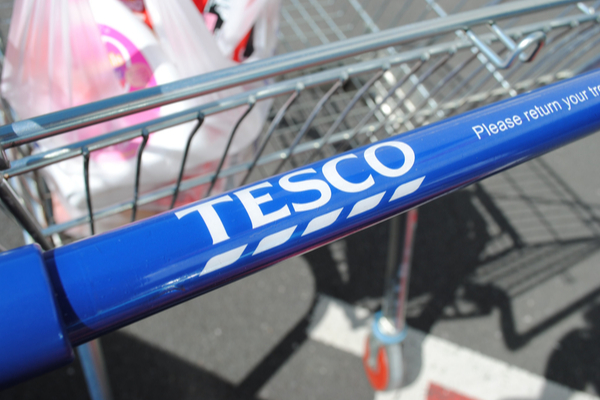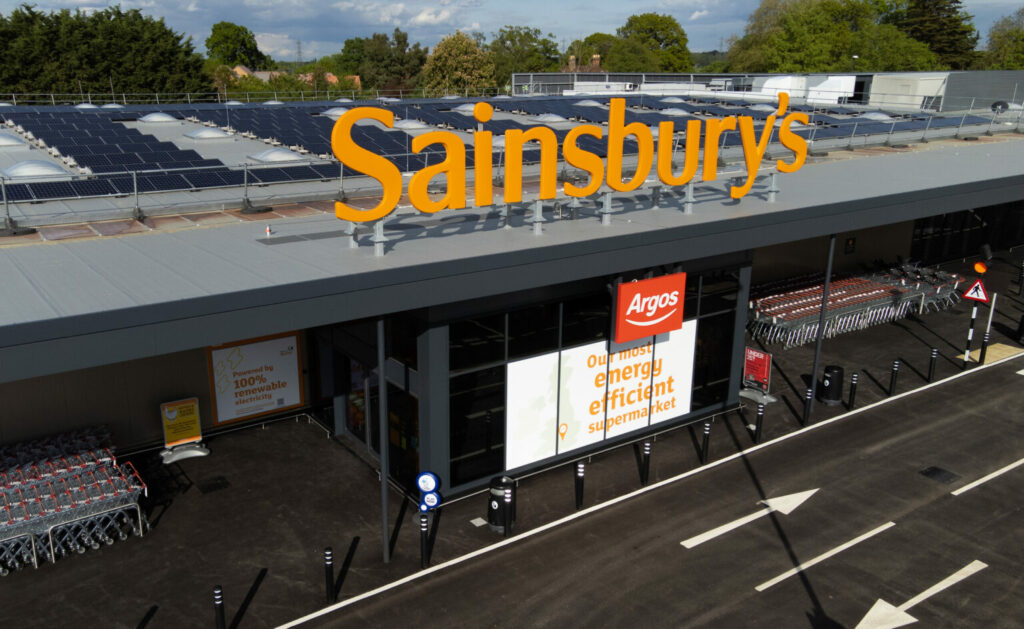// Tesco reports retail adjusted operating profit of £2.65 billion in the year to 26 February, slightly above guidance
// For the 2022-23 year it forecasts retail adjusted operating profit of between £2.4bn and £2.6bn
Tesco full-year operating profits surged 65% but it warned that earnings could fall in its current year as the cost-of-living crisis starts to hit consumers.
The supermarket, which has a 27% share of Britain’s grocery market, reported retail adjusted operating profit of £2.65 billion in the year to 26 February, slightly above guidance.
Excluding the bank, profits for the retail business were up 35% to £2.6bn.
Revenues came to £54.8bn for the 52 weeks ended 26 February 2022, up 2.5% on the year before and the company has also committed to another £750m share buyback by April 2023.
READ MORE:
- Tesco profits predicted to hit £2.75bn as it faces pressure to drop prices
- Tesco invests £200m in colleague pay and skills
- Tesco to sell £2 lateral flow tests
For the 2022-23 year the grocer forecasts retail adjusted operating profit of between £2.4bn and £2.6bn.
The supermarket giant’s huge increase in earnings was powered by a 6% rise in revenues, and a steep 1,025% step up in retail cash generated from operating activities.
Tesco said its performance will be influenced by three main factors including the extent of the further normalisation in customer behaviour post pandemic, the level of cost inflation and its ability to partially offset it, and the investment required to maintain the strength of its price position.
“Clearly, the external environment has become more challenging in recent months,” said Tesco chief executive Ken Murphy.
“Over the last year, we delivered a strong performance across the group, growing share in every part of our business. We did this by staying focused on our customers and doing the right thing for our colleagues, our supplier partners and the communities we serve.”
With household budgets under pressure, he said the supermarket group was “laser-focused on keeping the cost of the weekly shop in check” and stated that Tesco is “making more products more affordable, in more places than anyone else”.
With inflation reaching 7% Murphy said customers were already “planning changes to how they shop” and had started “looking really critically at where they spend their money.”
Own brand products would “play an important role” in the shift in consumer behaviour, the supermarket boss added.
During the year, the supermarket expanded its price matching initiative against discount rival Aldi to around 650 lines and said Aldi Price Match products now feature in 99% of large baskets.
It also relaunched its Low Everyday Prices campaign on 1,600 lines, with a clear focus on household and health and beauty products.
Murphy added: “We are confident that taking this approach will enable us to deliver on the multi-year performance framework we shared in October, driving sustainable growth and generating strong retail free cash flow. This confidence, and our strong performance to date is reflected in the increased pace and scale of our capital return programme, with a commitment to repurchase shares worth £750 million over the next twelve months.”
Click here to sign up to Retail Gazette‘s free daily email newsletter

















